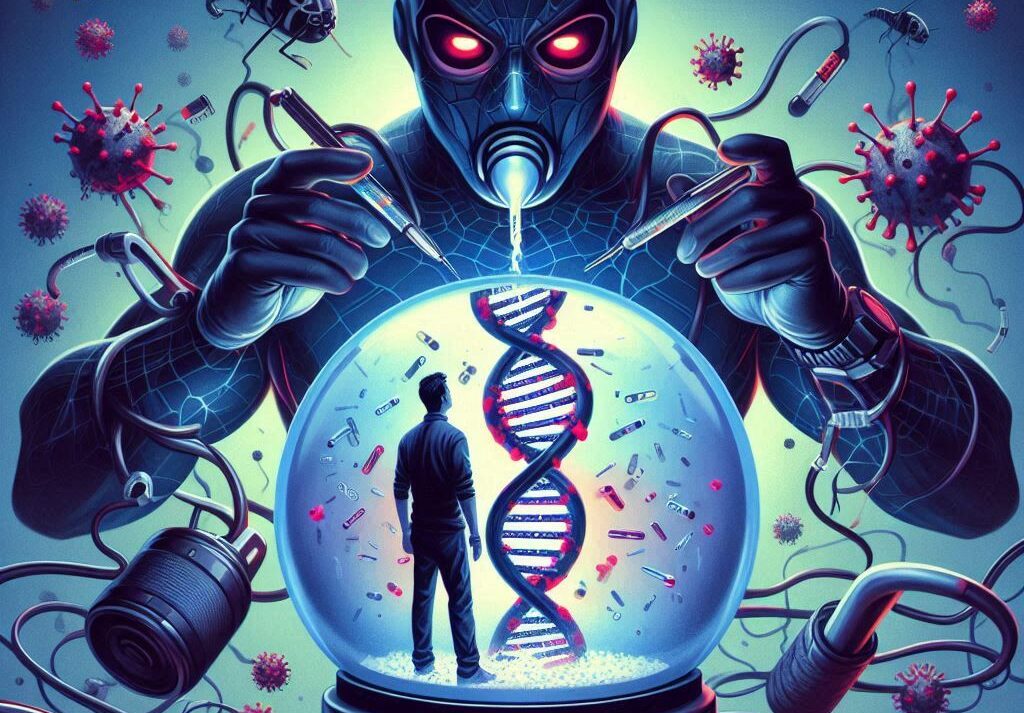23andMe Breach Could Impact Your Health, Insurance, and Freedom!

In light of the mass resignation of all seven independent directors at 23andMe last week, the company has become a glaring example of how cybersecurity is a fundamental business decision. Any organization that overlooks this crucial element faces both immediate and long-lasting repercussions. This breach is more than just another data leak—it’s a ticking time bomb that threatens to reshape how personal health, identity, and privacy are viewed.
DNA Data Now a Weapon
The stolen data isn’t just your average username and password. Hackers now have access to intimate, personal details that reach the core of what makes you unique—your DNA. These genetic profiles contain information that could be exploited in ways previously unimagined, turning a simple ancestry test into a Pandora’s box of potential risks.
Health Consequences
One of the most alarming outcomes of the breach is the potential for health-related data to be manipulated. Genetic data from 23andMe can include insights into predispositions for certain diseases, inherited conditions, and even traits like response to medications. Cybercriminals or unscrupulous organizations could use this information to affect decisions on your healthcare coverage, increasing premiums or denying insurance altogether based on perceived genetic risks.
Employers or insurers who obtain this data could discriminate against individuals carrying certain genes that indicate a higher likelihood of future illnesses. This could lead to higher costs, restricted coverage, or outright denials for millions of people. Imagine being told you’re uninsurable because a stolen DNA report indicated you might be at risk for a genetic disorder!
Identity Theft Reinvented
But the risks don’t end with health. Identity theft has entered a new and dangerous era. Traditionally, identity theft involved stealing Social Security numbers or bank details. Now, with DNA data, criminals can potentially impersonate someone on an entirely new level. They could forge medical records, commit fraud, or even frame individuals by manipulating genetic information.
A person’s DNA is irreplaceable—once stolen, it’s impossible to recover or change. That means the consequences of this breach could follow victims for life, impacting everything from their personal relationships to their legal standing.
Black Market for DNA Data
Stolen DNA information could also flood underground markets, sold to the highest bidder. Cybercriminals could sell this data to companies, researchers, or governments who may not have the same ethical standards when it comes to privacy. Your genetic code, once confidential, could be analyzed and used in ways you never intended—without your consent.
This new form of genetic identity theft opens the door to terrifying possibilities. Imagine an era where your genetic data could be exploited to target you in highly personalized ways, from health risks to tailored scams. This is no longer the realm of science fiction—it’s a real and present danger.
How to Safeguard Your Privacy
In light of the breach, 23andMe users should take immediate steps to protect themselves. Although you can’t change your DNA, you can tighten your online security by updating passwords, monitoring your accounts, and staying vigilant for signs of identity theft. Users should also consider requesting that 23andMe permanently delete their genetic data if they no longer trust the company to safeguard it.
If you are a business handling sensitive data, it’s critical to choose privacy-first solutions that prioritize encryption and security. Platforms like Zerocrat, a privacy-focused accounting suite, set a new benchmark in protecting user data by employing zero-knowledge architecture and advanced encryption methods, making it impossible for anyone—even Zerocrat—to access your private information without your permission.
As we move into an age where genetic data becomes increasingly valuable, this breach serves as a wake-up call. The consequences of losing control over our DNA are severe and far-reaching, affecting not just our health but the very fabric of our identities.
If there’s one clear message from this incident, it’s this: Our genetic data is more vulnerable than ever, and the stakes couldn’t be higher. The need for stronger, privacy-focused solutions is urgent—both for individuals and the businesses handling their most sensitive information.
